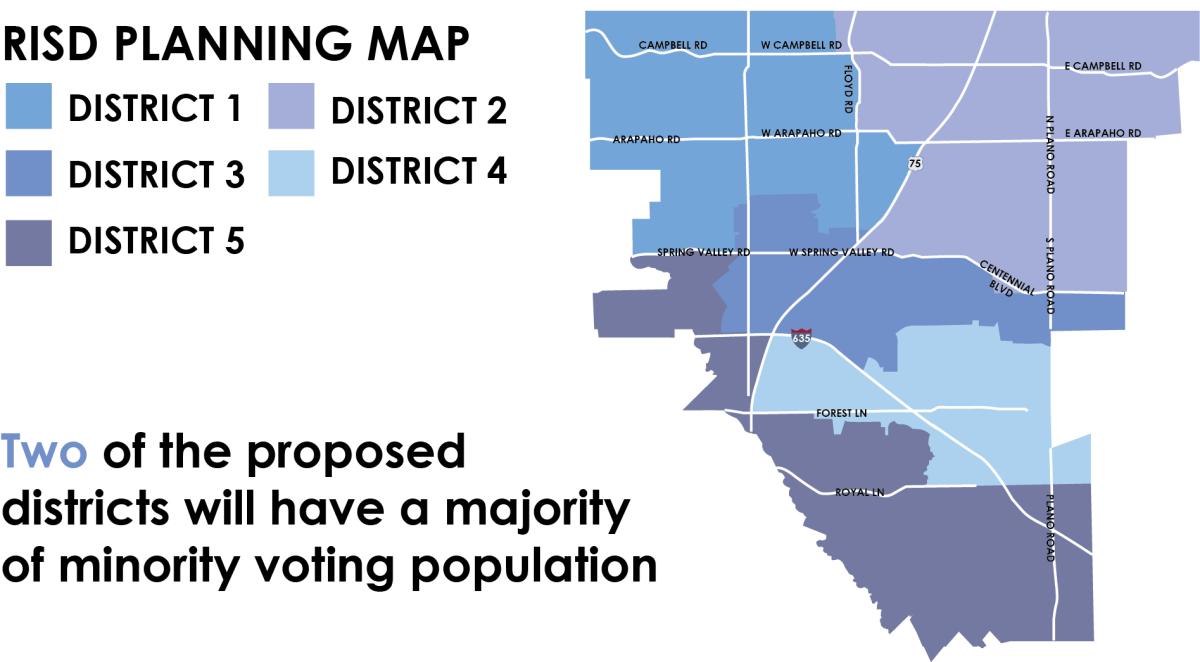Officials from the Richardson Independent School District have decided to transition from an at-large election system to a hybrid system following the settlement of a lawsuit filed against the district.
The school board voted unanimously to move from an at-large system to the hybrid system on Feb. 4. In an at-large system, all voters within RISD boundaries vote for all seven trustees of the RISD school board. Under the hybrid system, the seven board seats will be divided into five single-member voting districts, with two at-large members presiding over the entire district.
David Tyson is the sole plaintiff and only person of color to have served on the RISD school board in its 164-year history. The settlement forced RISD to move away from an at-large district where the entire school district voted for all seven trustees.
Tyson said he filed the lawsuit in 2018 after speaking with an attorney and concluding that the previous at-large voting system was in violation of the Voting Rights Act of 1965.
“I filed the lawsuit in 2018 after I really wasn’t getting the type of response from the school board as it relates to people of color not being able to get elected to the school board under the at-large system,” Tyson said.
RISD President Justin Bono said the hybrid scheme will help solve some of the issues with representation.
“That’s a system that can help address some of the geographic challenges that we’ve had with some inconsistencies with where trustees live that represent our district and certainly provide an opportunity for more minority representation on our board,” Bono said.
Under the settlement agreement, two of the five single member voting districts are required to have minorities represent the majority of the voting age population.
Marni Kaner, a past president of Richardson ISD Councils of PTA, said she was concerned about the district map draft.
“We’re concerned that now a board member elected by a constituency will vote for what is only good for their district and not the entire RISD,” Kaner said.
Mechanical engineering senior Josef Zippi, who attended Berkner High School, a component institution of RISD, said he did not believe the hybrid system would improve the district.
“I think that … it shouldn’t be the people in the area (that) are voting on the school district,” Zippi said. “It should be the people attending the school (that) should be voting on the school district: like the parents of the kids.”
Tyson said the current socioeconomic representation on the board is not diverse enough.
“An overwhelming majority of the board is upper middle class … those are the folks that represent us and those folks don’t always represent everybody within the district,” Tyson said. “What it comes down to is inclusiveness, and that can be nothing but bright for the Richardson Independent School District.”





